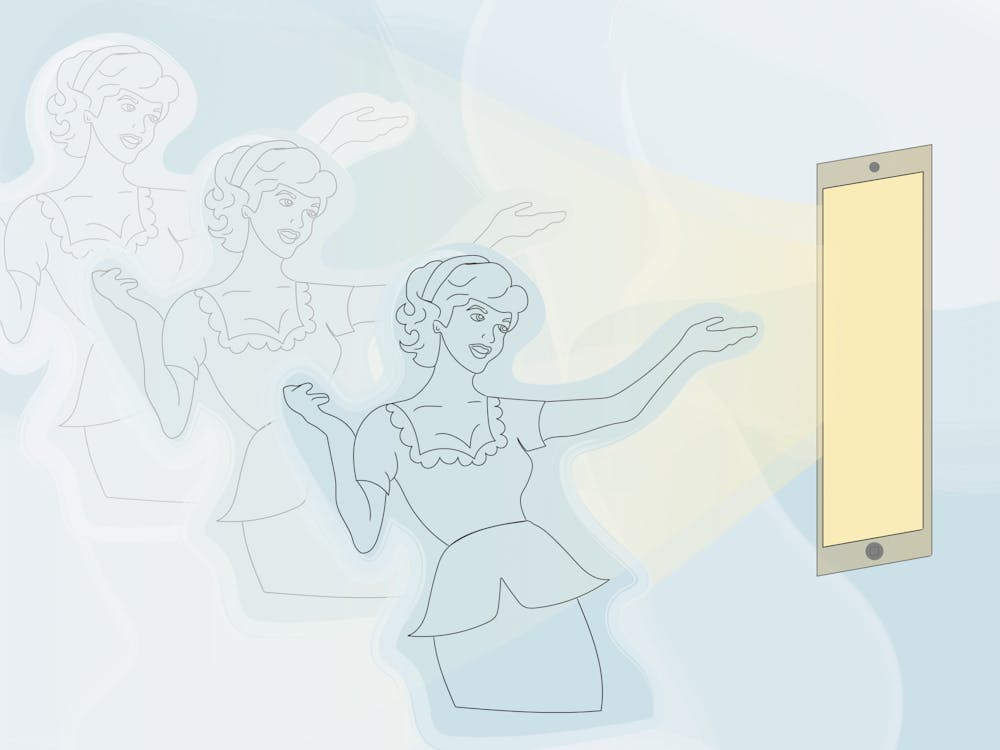A 2022 report from the World Economic Forum revealed that only 22% of A.I. professionals are women. However, the gender gap in technology begins even earlier. In 2019, women made up only 18.7% of computer science degree recipients and were also reported to have switched out of a STEM degree almost half the time.
The lack of female representation in the technology workforce, as well as tech-related education, has not only affected its workers but the content and products they produce as well. The top-selling voice assistants in 2022 -- Siri, Cortana, Google Assistant and Alexa -- were all created with a default female voice. Additionally, three out of the four were assigned a feminine-sounding name as well.
But why is this happening?
“The laws on coverture… have a huge influence on where we are today,” says Dr. Dawn Campbell, senior instructor of USC’s Women’s and Gender Studies department. Coverture, though first indoctrinated in the English common law, was adopted by many other nations over several centuries, including the United States. “A lot of people have that question, 'Where did all of this come from?'” she continues.
Coverture was the common law doctrine that stripped women of their identity outside of marriage. This meant that female persons had no legal identity if single or divorced. Therefore, married women couldn’t sue, own businesses or have rights to their own children. This was also the legal practice that led to a woman taking her husband’s last name upon marriage -- a custom that is still extremely common today.
By restricting a woman’s rights and personhood, women would have no choice but to be subservient to their husbands and fathers. After all, divorce in the age of coverture meant that a woman would never see her children again.
Despite social progress through new laws, gender experts say that these practices are still active in our daily lives. “Yes, coverture doesn’t look the same as it did in the 18th, and into the 19th centuries, but we still have these laws, policies, norms, expectations, scripts that are still heavily played out in our society,” Dr. Campbell said.
Though the introduction of women in the workforce allowed for some new freedoms, coverture-age ideals were still enforced. Women were expected to assist men not only in the home but also in their place of work. Even today, nursing, teaching and secretarial work are female-dominated fields.
This misogyny is perpetuated through AI voice assistants, which, like women, are asked to do mundane, domestic tasks that range from keeping track of appointments, to sending messages and turning off the lights.
Essentially, voice assistants are becoming part of daily life and are always there when the user needs them. However, these expectations have promoted biases towards real women as well. Psychology & Marketing’s recent study showed that compliant feminine voices have encouraged misogynistic behaviors in its users. For example, before UNESCO's intervention, Siri would reply, "I'd blush if I could," in response to being called a bitch.
So, how can we combat sexist practices in technology?
The first step would be to increase the number of women in tech-sector companies from the roughly 25% it is now. By decreasing the male influence and bias, tech companies will be less likely to enforce sexism in their products. On a broader level, Congress can write legislation combating gender bias not only in the workplace but in goods and services as well.
As of now, the bill that would combat discrimination on the basis of sex, the Equality Act, is awaiting the Senate's debate. If passed, the Department of Justice will have the ability to intervene when there is no equal protection for those of different gender identities and sexual orientations. This bill also covers goods and services, meaning technology would be less likely to include a gender bias.
Though society has made major progress in gender equality, biases in A.I. voice assistants prove we still have miles to go.



